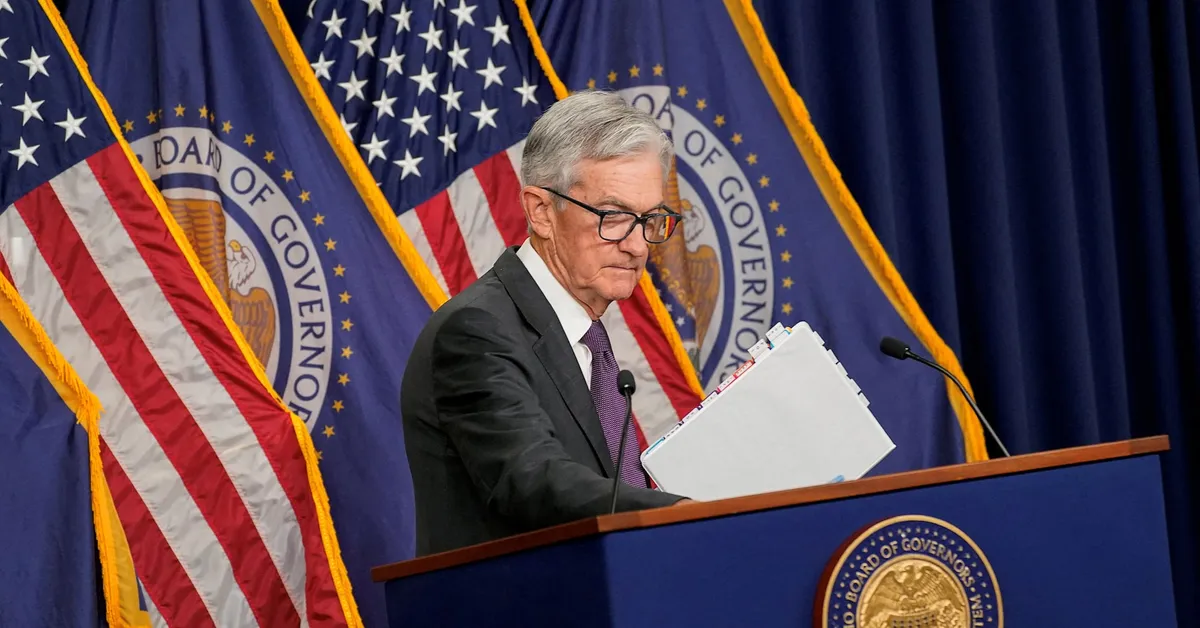
On April 18, 2023, during a press briefing at the White House, economic adviser Kevin Hassett revealed that President Donald Trump and his team are actively contemplating the possibility of firing Federal Reserve Chair Jerome Powell. This revelation underscores the ongoing debate surrounding the independence of the Federal Reserve and its implications for global markets.
When asked by a reporter if firing Powell was an option, Hassett confirmed that the president and his team would continue to evaluate this matter. This statement marks a significant shift in the administration's stance, indicating that the issue is now under serious consideration.
Hassett's comments come on the heels of Trump's escalating tension with Powell, whom he accused of engaging in political maneuvering by not cutting interest rates. Trump asserted his authority to remove Powell swiftly, stating, “If I want him out of there, he'll be out real fast, believe me.”
In his 2021 book, The Drift: Stopping America's Slide to Socialism, Hassett had previously argued against firing Powell, warning that it could damage the Federal Reserve's reputation as an objective institution and potentially destabilize the dollar. However, during the recent press exchange, he appeared to distance himself from those views, suggesting that new legal analyses might warrant a reevaluation of their approach.
Hassett did not specify the nature of the new legal analysis but hinted at ongoing legal challenges surrounding Trump’s authority to dismiss federal officials. A pending Supreme Court case regarding Trump's authority to fire Democrats from federal labor boards may set a precedent for Powell's situation.
Jerome Powell has consistently maintained that the law protects his position, stating that he would not resign if asked by Trump. His current term as chair lasts until May 2026, and he is committed to serving his full term on the Board of Governors until January 2028.
Trump's dissatisfaction with Powell stems from the latter's decision to raise interest rates during his presidency. Although Powell was initially appointed by former President Barack Obama, Trump elevated him to the role of chair, only to later express frustration over interest rate hikes. In recent comments, Trump reiterated his belief that the Federal Reserve has a responsibility to lower interest rates, stating, "The Fed really owes it to the American people to get interest rates down.”
The ongoing tensions between Trump and Powell have raised concerns among economists and investors about the Federal Reserve's independence. The Fed's credibility as a leading central bank hinges on its ability to operate free from political influence. A potential move to remove Powell could exacerbate market instability, which has already been affected by Trump's unpredictable trade policies.
Krishna Guha, Vice Chair at Evercore ISI, warned that any threats to the Fed's independence could heighten market anxiety and lead to a stagflationary environment characterized by rising inflation and stagnant economic growth.
As the Trump administration continues to evaluate the potential firing of Federal Reserve Chair Jerome Powell, the implications for market stability and the central bank's credibility remain paramount. The tension between political influence and the independence of the Federal Reserve will be closely monitored by economists, investors, and policymakers alike.